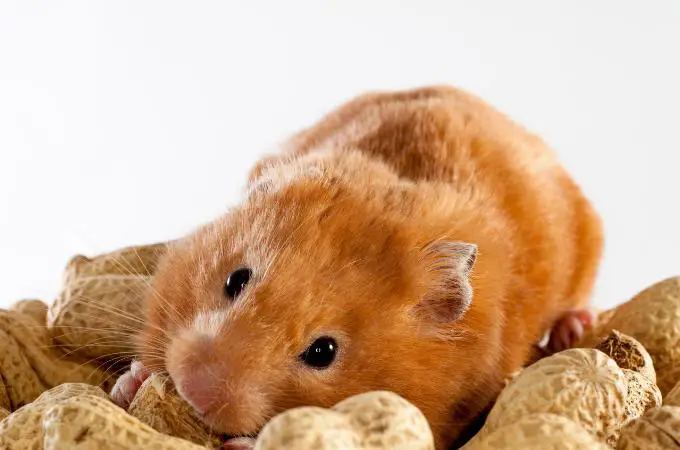
As an owner of a Syrian hamster, it is normal for you to want the best for your pet. Syrian hamsters are relatively the easiest creatures you can raise and play with. But it might get a little different when it comes to their feeding pattern. In that case, what do Syrian hamsters eat?
In this article, we will take a look at the natural diet for Syrian hamsters. Keep reading to know all about your pet’s food choices.
What Do Syrian Hamsters Eat?
Like other hamster breeds, Syrian hamsters are omnivorous. They eat plants, insects, and animal-based foods. As a general rule of thumb, these hamsters are expected to follow the feeding pattern of hamsters in the wild. The only difference is that the Syrian hamsters kept as pets eat more neatly than wild hamsters.
In simpler terms, domesticated Syrian hamsters are fed clean and fresh fruits and vegetables, as well as cooked meat as opposed to the raw foods eaten by wild hamsters.
There are a variety of foods you can feed your Syrian hamster. Here are some of them:
You might also like: Best Food For Syrian Hamster
Nuts

Nuts are a great source of nutrients like vitamins, minerals, fats, fiber, and protein. You might find your pet hander growing a bit too fond of this food, basically because they find it sweet and chewy. You can feed your Syrian hamster nuts like unsalted walnuts, peanuts, hazelnuts, and cashews.
Hamster pellets
These are commercial food blends that can be bought in pet stores. Experts at PDSA advise against going for muesli-style food mixes because hamsters would naturally go for the bits that are sugary while avoiding the bits that are rich in nutrients like fibre.
Regardless, Syrian hamsters will never turn down their pellets once offered.
Fruits and Vegetables
Fruits and veggies are rich in minerals and vitamins, both of which are part of the nutritional requirements for Syrian hamsters. But the thing is, hamsters are meant to consume only a small amount of them due to their high sugar and salt content.
Syrian hamsters eat fruits such as
- Apples
- Pears
- Melons
- Bananas.
Additionally, they eat a variety of vegetables like;
- Carrots
- Broccoli
- Cauliflower
- Kale
- Cucumber
- Spinach
As earlier stated, fruits and vegetables are occasional treats and not staple food because too much intake of them could be detrimental to the health of a Syrian hamster.
Insects
As omnivores, Syrian hamsters eat insects. They are very easy to catch and are rich in minerals and vitamins. Syrian hamsters love insects because of their flavor and chewiness. You will most likely find them enjoying insects like;
- Crickets
- Mealworms
- Grasshoppers
- Earthworms
Also, insect larvae like caterpillars are among the favorite foods for Syrian hamsters.
You might also like: Do Hamsters Eat Meat?
What Should Syrian Hamsters Not Eat?

Inasmuch as Syrian hamsters eat a variety of foods, there are certain food items that are harmful to their health. In some cases, they might want to eat them regardless but it is up to you as the owner to be careful of the harmful foods that they find entertaining to eat.
These are some foods domesticated Syrian hamsters are not supposed to eat:
- Almonds
- Junk food like chips
- Citrus fruits like orange, lime, lemon, etc.
- Raw meat
- Apple seeds
- Raw potatoes
- Garlic
- Raw beans
- Cherry pits
If you have been feeding your pet Syrian hamster some of these food substances, then you must take them to the vet for a proper check-up.
Health Implications Of Feeding Syrian Hamsters Wrongly
If you don’t feed your Syrian hamster with the right food, your pet could likely face these health problems:
- Weight gain and obesity.
- Stomach upset.
- Heart problems.
- Diarrhea
- Gastrointestinal diseases
- Kidney stones
In worst-case scenarios, health issues arising from a bad diet could consequently lead to the death of these creatures. Therefore it is important that they are properly fed the right way.
Conclusion
Syrian hamsters are not picky eaters but you have to be mindful of what they eat. These furry creatures are meant to maintain the natural diet they would normally use in the wild. So, it is important that nothing out of the ordinary is fed to them.
By paying attention to the aforementioned food recommendations, you can rest easy knowing that your hamster will maintain a proper diet for a long time.









